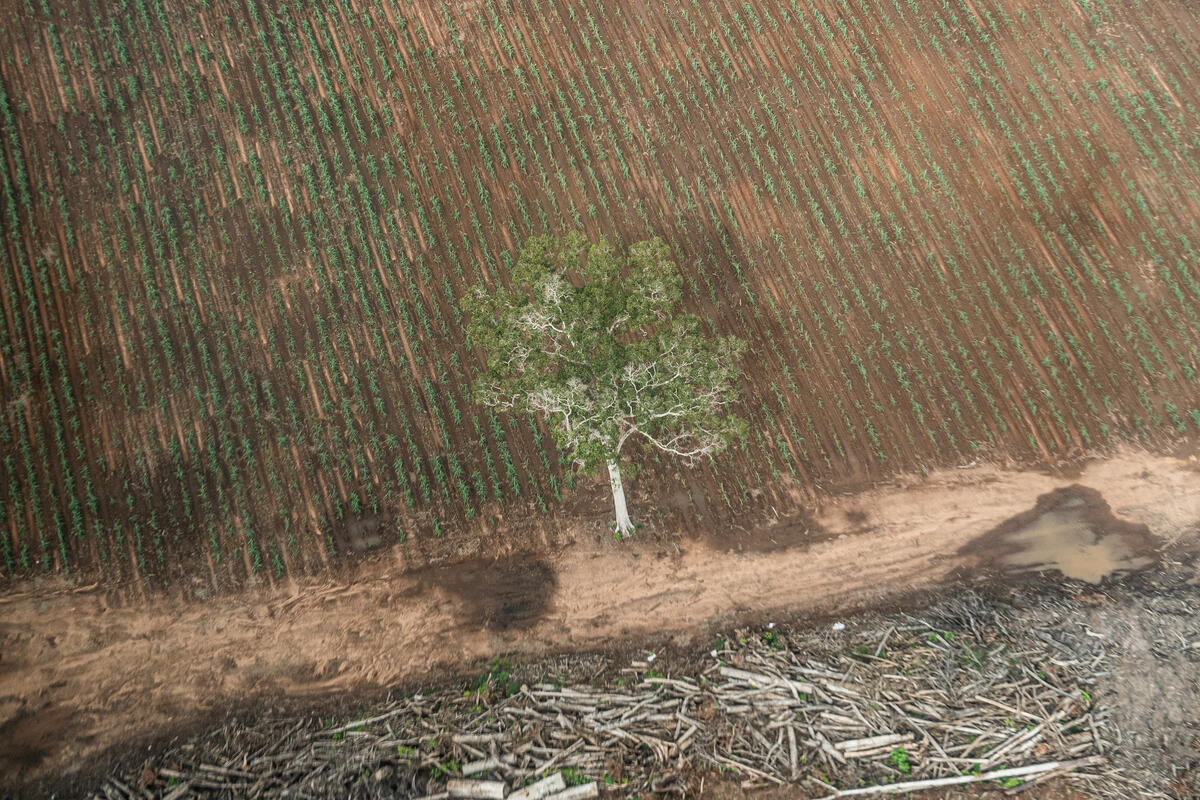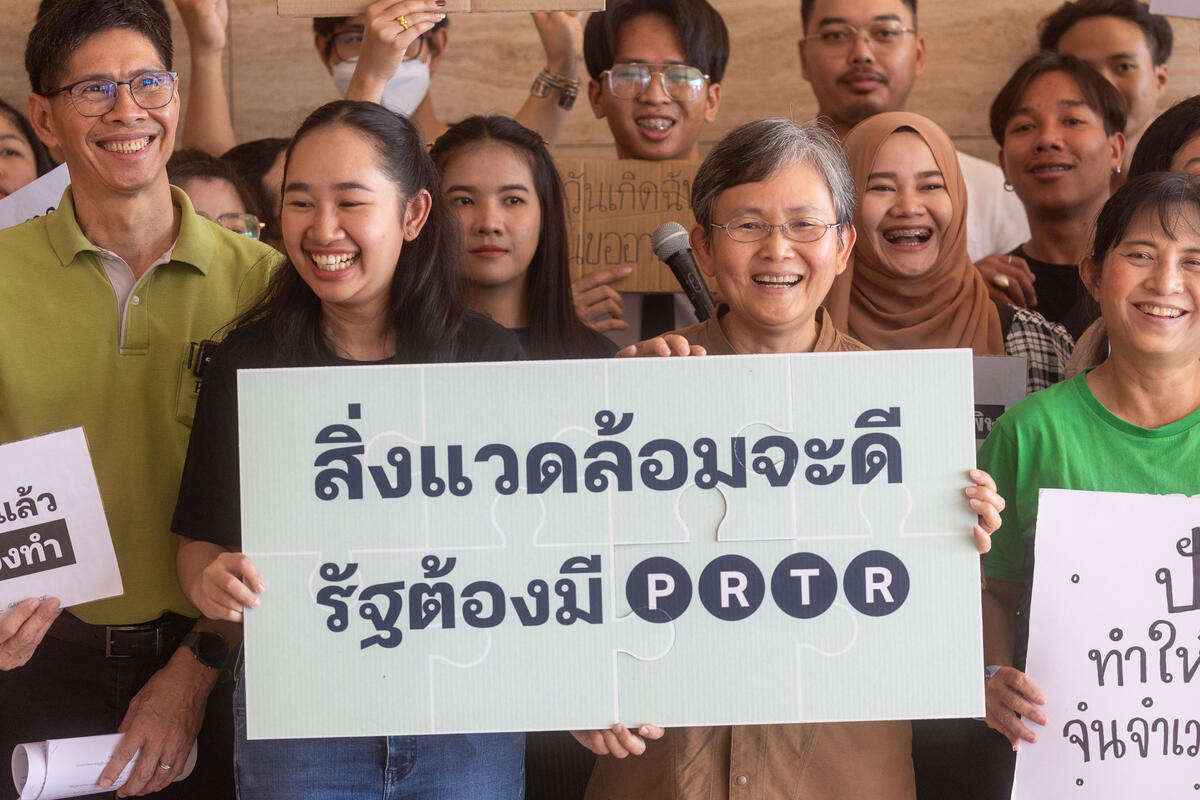May 24, 2025 – Greenpeace Thailand and the Ecological Alert and Recovery – Thailand (EARTH) call on ASEAN leaders at the 2025 ASEAN Summit to address the growing crisis of transboundary pollution in the Greater Mekong subregion (GMS). Without urgent action from ASEAN leaders, this cross-border threat will continue to undermine peace and stability, and put communities’ livelihoods at risk.
ASEAN is a region rich in ethnic diversity and natural resources, playing a crucial role in global economic growth and stability. At its core, the ASEAN community aspires to promote peace, cooperation, and sustainable resource use to improve the quality of life for all its people.
Under Malaysia’s 2025 ASEAN Chairmanship, the Summit theme is “Inclusivity and Sustainability” – signaling a commitment to a people-centered, socially responsible, and inclusive society. However, achieving a sustainably improved quality of life is increasingly challenged by political instability, natural disasters caused by climate change, damaged ecosystems, and recurring human rights violations. These issues destabilise the region and highlight the urgent need for strong regional environmental governance and protection of the right to a healthy and safe environment.
Inclusivity and Sustainability in ASEAN can only be achieved by putting people and nature at the core of its development agenda. As peace and environmental concerns become more pressing, ASEAN leaders must urgently demonstrate leadership to protect the future of the region and its people.
One key threat is transboundary pollution – including transboundary haze pollution and heavy metal contamination of rivers and soil – especially in the Greater Mekong subregion. This pollution is largely caused by industrial-scale agricultural burning, mining, manufacturing, and fossil fuel expansion. A current stark example is the rare earth and gold mining operations near the headwaters of the Kok River in Shan State, Myanmar – just 20 kilometers from the Thai border and a few kilometers from the river itself. These activities pose serious health and economic threats to communities in Chiang Rai and Chiang Mai and risk spreading downstream into the Mekong basin. Toxic residues in rivers and soil could lead to long-term environmental, health, and economic disasters.
This transboundary pollution crisis undermines ASEAN identity—socially and culturally—by violating human rights, social justice, and the fundamental freedoms of indigenous, ethnic, and vulnerable communities. Protecting these rights is essential for ASEAN unity and a healthy environment.
Climate-related disasters such as floods, landslides, droughts, and heatwaves are also intensifying and will further worsen the problem of transboundary pollution. Vulnerable and marginalised groups suffer the most from the social, economic and environmental impacts. If a major flood and mudslide like the one in late 2024 recurs, toxic contamination in the Kok and Sai Rivers could spread further. The following dry season would likely intensify the cross-border haze crisis due to extreme heat.
Greenpeace Thailand and the Ecological Alert and Recovery – Thailand (EARTH) call on ASEAN leaders to recognise the urgent need to safeguard peace and regional stability, and to protect people’s well-being by addressing the transboundary pollution crisis in the Greater Mekong subregion. This action aligns with ASEAN’s vision of Inclusivity and Sustainability, and must be pursued through the following policy recommendations:
Policy Recommendations
- Promote Sustainable and Responsible Cross-border Business Practices
Strengthen and monitor cross-border corporate accountability frameworks to prevent destabilisation and ensure economic growth that considers public welfare and sustainable environments—aligned with ASEAN Vision 2020’s goal of a “Clean and Green ASEAN.” This includes establishing mechanisms for engaging both ASEAN-based and external investors (e.g., China) and to hold businesses accountable for their environmental and human rights violations related to environmental safety.
- Strengthen Legal Accountability for Transboundary Pollution
Require Strategic Environmental Assessments (SEA) and Transboundary Environmental Impact Assessments (TEIA) for all projects with cross-border environmental implications. Home states of multinational corporations or financial institutions must have the legal authority to enforce these assessments. - Uphold Ethics and Accountability in Investment
Enforce ethical standards and hold domestic and foreign companies accountable, ensuring responsible business conduct and environmental stewardship across supply chains.
- Take Proactive Climate Action
Address the root causes of climate change by promoting climate justice for vulnerable groups and indigenous communities. Under Malaysia’s chairmanship, ASEAN must work toward emission reductions aligned with the UN Framework Convention on Climate Change (UNFCCC) to minimise the impacts of climate disasters. - Adopt an ASEAN Protocol on the Right to Know
Establish legal guarantees for public access to environmental information, participation, and justice. This foundational right strengthens enforcement, enhances citizen participation, and holds corporations accountable.
- Create and implement an ASEAN Pollutant Release and Transfer Register (PRTR)
Develop national PRTR systems in each ASEAN country and integrate them into a regional ASEAN PRTR to reduce cross-border pollution and greenhouse gas emissions. - Apply Principles from the Aarhus Convention
Follow the Aarhus Convention model, which ensures access to environmental information, public participation, and justice. This framework promotes transparency and citizen empowerment in sustainable development and environmental governance. - Establish Transparent Supply Chain Traceability
Implement traceability systems across national and regional agricultural and livestock industries, with online access for consumers and the public. - Enforce Human Rights Due Diligence (HRDD)
Adopt the UN Guiding Principles on Business and Human Rights (UNGP) to protect labor rights and environmental standards throughout the supply chain. - Increase Public Participation
Especially from affected communities and civil society, in monitoring the implementation of the Second ASEAN Haze-Free Roadmap (2023–2030), ensuring inclusive feedback and community-driven solutions.
- Sustain Peace Through Inclusivity
Emphasize protection and support for ethnic minorities, indigenous peoples, and vulnerable groups as frontline defenders of the environment. - Strengthen ASEAN Environmental Rights Frameworks
Shift from non-binding declarations to legally binding agreements on environmental rights, ensuring enforcement and bridging legal gaps—especially in transboundary pollution cases like the toxic contamination of the Kok and Sai Rivers from mining activities in Myanmar.
- Propose an ASEAN Environmental Rights (AER) Framework with legal enforcement to protect both environmental and human rights.
- Revise the ASEAN-China Environmental Cooperation Strategy and Action Plan (2021–2025) to include human rights and environmental impact monitoring to ensure that economic development does not put profits over justice, benefits and rights of people in the ASEAN region.
ASEAN’s path to a sustainable economic future must be grounded in equitable access to rights and social justice. Regional leaders must act decisively to address transboundary environmental threats before they escalate into wider crises across the Mekong Basin, with lasting impacts on local, national, and regional economies.
As the 2025 ASEAN Summit draws global attention, millions in the Greater Mekong subregion are suffering from unregulated environmental contamination. We urge ASEAN leaders to adopt a legally binding 2025 ASEAN Declaration on Environmental Rights as proposed by civil society, and to take immediate, coordinated action to confront the unfolding cross-border environmental crisis.



